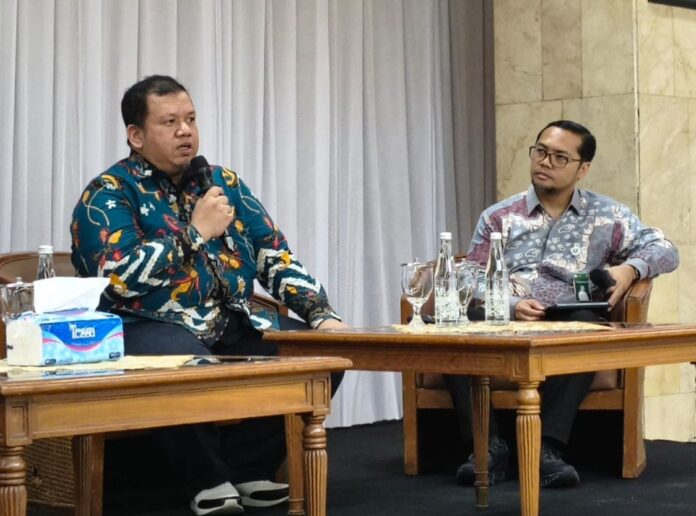Ecobiz.asia – Indonesia’s Ministry of Forestry is tightening carbon market governance to prevent the entry of so-called phantom credits and ensure that only high-quality, high-integrity forest carbon is traded globally.
Ilham, Director of Forest Utilization Business at the ministry, said the government is preparing a revision to Ministerial Regulation No. 7/2023 on Forest Carbon Trading Procedures. The revision aims to strengthen verification mechanisms and guarantee that carbon credits originate from forests free of conflict and managed under strict sustainability criteria.
Finalization of the regulation, he noted, is pending the signing of a revised Presidential Regulation (Perpres) No. 98/2021 on Carbon Economic Value Implementation by President Prabowo Subianto.
“We hope the revised Perpres 98 will soon be signed by the President,” Ilham said during a discussion on the Forestry Carbon Market Ecosystem Development Program in Jakarta on Friday (Sept 26, 2025).
The updated regulation will introduce a Standard Operating Procedure (SOP) for issuing forest carbon credits. The SOP is designed to prevent fraud and safeguard the credibility of Indonesia’s carbon market.
“This will ensure that our carbon credits are both high quality and high integrity,” Ilham stressed.
Beyond regulation, the ministry is also working on market readiness. It has promoted Indonesia’s forestry carbon potential to bilateral partners and international stakeholders, including at the ASEAN Climate Summit in Bangkok. The goal, Ilham said, is to secure early interest so that once the market opens, buyers can move in quickly.
Indonesia holds significant potential in global carbon markets, given its vast tropical forests and extensive peatlands. Peat ecosystems, Ilham added, represent additional value in global markets due to their massive carbon storage capacity and vulnerability to fires that can release huge emissions.
Edo Mahendra, Senior Advisor to the Forestry Minister, emphasized that three elements must be reinforced to rejuvenate Indonesia’s forest carbon market: regulation, systems and business processes, and human resources.
“By preparing these pillars, we can build a carbon market ecosystem rooted in high integrity and high quality,” he said.
Laksmi Wijayanti, Director General of Sustainable Forest Management, underlined that carbon market instruments must also deliver fair benefits.
“The most important thing is that the benefits are distributed equitably,” she said. ***





